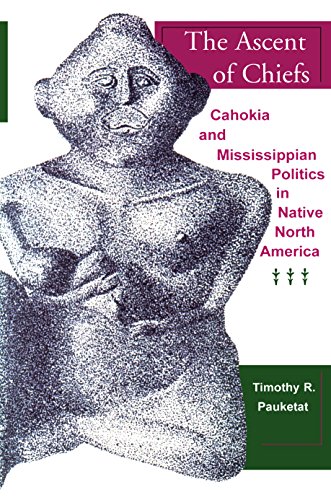
By Anthony Savile
This clean orientation to Kant's Critique of natural Reason offers his critical topic, the advance of his Transcendental Idealism, as a ground-breaking reaction to perceived weaknesses in his predecessors' money owed of experiential wisdom.
Content:
Chapter 1 old Prelude (pages 1–13):
Chapter 2 Sensibility, area and Time (pages 14–32):
Chapter three event and Judgement: The Metaphysical Deduction (pages 33–47):
Chapter four realizing, Objectivity and Self?Consciousness: The Transcendental Deduction (pages 48–61):
Chapter five the foundations of natural figuring out (pages 62–91):
Chapter 6 Cognitive Rewards: The Refutation of Idealism, the Self and Others (pages 92–109):
Chapter 7 Appreciation (pages 110–128):
Read Online or Download Kant's Critique of Pure Reason: An Orientation to the Central Theme PDF
Best science & medicine books
New PDF release: Theoretical Roots of US Foreign Policy: Machiavelli and
This quantity explores the explanations why American leaders from the 1700s onwards usually undertake guidelines of unilateralism. Thomas M. Kane offers clean causes for America’s invasion of Iraq and defiance of overseas agreements, which pass a lot deeper than traditional evaluations of specific presidents to ascertain the true importance of the September eleven assaults.
The Ascent of Chiefs: Cahokia and Mississippian Politics in - download pdf or read online
This bold booklet presents a theoretical rationalization of the way prehistoric Cahokia grew to become a stratified society, and eventually the top of local American cultural fulfillment north of Mexico. contemplating Cahokia when it comes to type fight, Pauketat claims that the political consolidation during this quarter of the Mississippi Valley occurred fairly abruptly, round A.
Joel Peter Eigen's Unconscious Crime: Mental Absence and Criminal PDF
A sleepwalking, homicidal nursemaid; a "morally vacant" juvenile poisoner; a guy pushed to arson through a "lesion of the will"; an articulate and poised guy on trial for attack who, whereas accomplishing his personal security, undergoes a profound character switch and turns into a wild and delusional "alter. " those individuals are no longer characters from a secret novelist's vibrant mind's eye, yet really defendants who have been attempted on the outdated Bailey, London's principal legal courtroom, within the mid-nineteenth century.
J.M. Steele's Observations and Predictions of Eclipse Times by Early PDF
Eclipses have lengthy been noticeable as vital celestial phenomena, no matter if as omens affecting the way forward for kingdoms, or as beneficial astronomical occasions to aid in deriving crucial parameters for theories of the movement of the moon and sunlight. this can be the 1st ebook to gather jointly all almost immediately recognized documents of timed eclipse observations and predictions from antiquity to the time of the discovery of the telescope.
- The Bumpy Road: Max Planck from Radiation Theory to the Quantum (1896-1906)
- Fools and idiots? Intellectual disability in the Middle Ages
- The Rise of an African Middle Class: Colonial Zimbabwe, 1898-1965
- The Opening of Vision: Nihilism and the Postmodern Situation
- Indigenous Archaeology: American Indian Values and Scientific Practice
- Liberal Democracy 3.0: Civil Society in an Age of Experts
Extra info for Kant's Critique of Pure Reason: An Orientation to the Central Theme
Sample text
Both sorts of unity must be due to the workings of some a priori concepts supplied in a completely formal way by the understanding. And as the understanding draws on these concepts in the production of complete judgements in one logical form or another, so it conceptualizes the manifold of experience in terms of them, thereby introducing a formal, a priori and transcendental content into the output of its synthesizing operation, that is, into the content of our experience itself. It is notable that in this passage and, indeed, in the rest of this chapter of the Analytic of Concepts Kant does not say anything further about what the particular transcendental content is that is introduced into our synthesized intuitions by the operation of understanding.
These are concepts which parallel the formal intuitions of space and time that govern the operation of sensibility. Seeing what is going on now as roughly mirroring the earlier discussion of sensibility, we shall expect to find Kant persuading his readers that these concepts are a priori ones, and not empirical. Then, he will want to establish that they are also necessary in the sense that we cannot but draw on them in the experience we have of the world. Finally, he must make out that they have their application for us only to things as they appear, and not as they are in themselves.
The reason is that what enables him to identify a judgement as one having a particular recurring form can only be the occurrence in its articulation of the clearly identifiable non-empirical and formal concepts that serve to link the given experiential elements in repeatable ways. So, for Kant, what defines a particular form of judgement must be the very concepts that appear in the Table of Categories at the appropriate points. As far as he is concerned, the linkage between the two is analytic and should be entirely perspicuous.



